From where I live, to get to a place in New South Wales called Newcastle.
You have to travel along the Pacific Highway between Sydney and Brisbane.
And as I discovered a couple of weeks ago. This is almost certainly one of the most boring stretches of road in the whole of Australia. And, as if that wasn’t bad enough. It has a fairly poor accident record too. And I think I know why…
It’s extremely tempting to steer your vehicle into the oncoming traffic. Just to relieve yourself from the sheer tedium of the hundreds of kilometres (that feel like thousands). That you need to cross.
My wife Jodie. Who really should try lapsing into unconsciousness. Rather than driving from the back seat of our putt-putt, on even the shortest of journeys while I’m driving. Stayed resolutely awake on this one as per usual.
Not so much because she had to tell me how to do things better. Oh no not this time (although she still did). This time, I’m sure she was genuinely terrified that I would fall asleep. Such was the lack of any real sensory stimulation along the way.
Kilometre after kilometre after kilometre after kilometre of straight, flat tarmac. Stretches before you on the Pacific Highway. Every inch of it bordered by hedgerow-starved fields. Most seeming to contain nothing… Or if they did. They contained no more than what could be, as much use as cauliflowers.
The en-route ‘architecture’ too was a mix of what appears to be abandoned old farm buildings and crappy 1960’s style bungalows. Surrounded by unkempt gardens, scattered randomly across the landscape. There are a lot of bungalows out there and to be honest. I don’t think people in New South Wales have a head for heights. Or maybe it’s just not worth building a bedroom with a view. When there’s nothing to actually see.
Occasionally you will come across the odd larger house.
Surrounded by 40 foot tall leylandii.
I’m not sure whether the owners are trying to block the view of the house from the road. Or the view of the road from the house. The latter would definitely be a good idea though.
At one point I even noticed a sorry-looking motel. And marvelled at who might ever stay there… And more to the point maybe, why? (We writers do that sort of thing). After pure time though. I came up with a short list that included breakdown victims, truckers needing to stretch their legs, hookers working in annonymity and escaped prisoners maybe holding hostages. But I quickly ran out of any real sane ideas after that.
Abandoned rusty old cars too, must be status symbols around these parts. Because everyone seems to have one in their front garden. The only other things of note are the myriad discount retail emporia. Heralded by signs that look like they’ve been written by a dyslexic hyperactive seven year old. Let loose with some old paint and a brush.
It’s sort of how you’d imagine the whole country might look about 20 years post-holocaust. When some signs of civilisation are just starting to return. But you are still painfully aware that something awful must have happened.
Anyway, in an attempt to relieve the boredom, we embarked on a game of I Spy.
It didn’t last long…
Her: “I spy with my little eye something beginning with ‘f’.”
Me: “Is it ‘field’?”
Her: “Bugger!”
Eventually though, the road passes over a bridge traversing a muddy river. And you end up in Coffs, which isn’t that bad at all. The tarmac starts to turn, the landscape starts to roll. And trees which haven’t been purchased from a garden centre, solely for their fast-growing and eyesore-masking properties, start to emerge.
We eventually arrived at the hotel we’d booked. Which was excellent. It had some interesting elements to its pricing and customer service offering though. Which I’ll come back to in a moment. But the only reason I got to thinking about that at all. Was the complete lack of anything better to do.
Are you still keeping up with this? Good, I’m glad someone is!
When we booked the hotel, it was a very open and transparent process. The room wasn’t cheap, but the cost was clearly explained. As was the price of an upgrade and what benefits that would bring. When we arrived there were no nasty surprises. In fact quite the reverse. We were offered complementary newspapers. Informed that all phone calls from the room would be free of charge. And were directed to a cupboard containing free drinks and some home-made cookies.
We actually got more for our money than we thought we were getting when we booked our room.
Now compare that with a typical Ryanair experience.
 The basic cost of the flight will be relatively low. But from there on, it is only the most cautious and diligent of passengers that emerge from the process having paid anything like what they expected. You need your wits about you. Take a bag that’s slightly too big or heavy. Or fail to have all your paperwork in order. And you’ll face additional punitive charges which are totally out of proportion to the original price. Or the incremental cost of dealing with the transgression.
The basic cost of the flight will be relatively low. But from there on, it is only the most cautious and diligent of passengers that emerge from the process having paid anything like what they expected. You need your wits about you. Take a bag that’s slightly too big or heavy. Or fail to have all your paperwork in order. And you’ll face additional punitive charges which are totally out of proportion to the original price. Or the incremental cost of dealing with the transgression.
This isn’t the sort of upsell process that American companies do so well. In which customers are coaxed into spending more than they initially intended. But rather a seemingly deliberate attempt to make things difficult so that customers unwittingly fall foul of the rules. And become forced to pay extra. Add in the fact that anything beyond a basic seat on their planes incur an additional charge. And the initial price quoted is much less likely to be a close enough indication of the final bill.
There’s nothing illegal about this of course…
In fact Ryanair have ensured that they are watertight in this regard. But it does illustrate the opposite end of the spectrum from which companies can deal with pricing and managing customer expectations.
At one end you have a hotel that quotes a price. Sticks to it and even throws in some bonuses after the contract is made. At the other you have an airline that quotes an initial price. Charge for every conceivable extra. And then uses the rest of the transaction fulfilment process to squeeze as much additional money out of the customer as they can.
Now I’m sure Ryanair would argue that the average customer still ends up paying less with them than their competitors. And that doing things this way benefits those who are ‘savvy’ and don’t want to pay for things they don’t really need. Both of these things are probably true, and the company is extremely successful. And just because I don’t happen to like the way they do business. And choose to spend my money elsewhere. Certainly doesn’t mean we should reject the lessons of the business model wholesale. But all of this does raise an important question.
What would be the best pricing model for me and my business?
Is it one like the hotel, where everything is open, transparent and included. And where customers get more than they expect after the contract is under way. Or is it one like the budget airline. Where you hook people in on a seemingly low price. And then put systems and processes in place to extract as much additional revenue as possible from the transaction afterwards?
I think a lot will depend on my personal ethics and what I feel most comfortable with.
That is why I uncompromisingly opt for the hotel’s version of trading.
But it’s proven fact that both approaches can and do work. Companies like Ryanair survive and prosper for a reason. A large part of any market is prepared to tolerate an awful lot of pain in pursuit of what they perceive to be a low price.
The success of businesses offering transparent pricing and ‘beyond expectation’ service. Shows that there’s a significant market sector for whom price isn’t the primary consideration. And they’re prepared to pay for better (my kind of customers).
Choose the Ryanair route, and you may find yourself looking over your shoulder. Struggling to retain customers and constantly fighting a customer service fire. Choose the spa hotel route, and you may find yourself frustrated. As you see a large part of the potential market gravitate towards the cheap and cheerless. Irrespective of the true value on offer.
There are no right and wrong answers to positioning.
The reality of course, is that there is a continuum in place here. And there are numerous alternatives to consider between these two extremes. And I think all businesses should consider them. But, once you set out down one particular pathway, it’s not easy to go back. Not that I would ever want to.
Nobody is going to easily accept Ryanair as a born-again premium service provider. Any more than they are likely to accept Claridges Hotels as the epitome of cheap and cheerful accommodation. At the end of the day, you become what you’re perceived to be. And perceptions don’t tend to shift too easily.
 Anyway, as we headed back home at the end of our weekend gig. Back down the Pacific Highway.
Anyway, as we headed back home at the end of our weekend gig. Back down the Pacific Highway.
A belligerent tractor driver reduced the entire carriageway to a 20kph crawl. And then refused to pull over for about 7 further kilometres.
I discerned from the numerous honking horns and hand gestures. That this wasn’t very much appreciated by the other drivers. Nor indeed was it the ‘done thing’. But for once I was fairly relaxed about things.
Maybe because I realised that the driver probably lived locally.
And having the power to irritate a couple of hundred motorists for 15 minutes. Had to be a very poor compensation for that.
© Andy Robinson, Localad Services Handyman Assist
If you have enjoyed reading this article… Be sure to check out my many other Posts. Or better still, for up to the minute notifications of what I am up to, why not subscribe here for free?
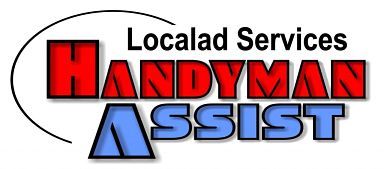
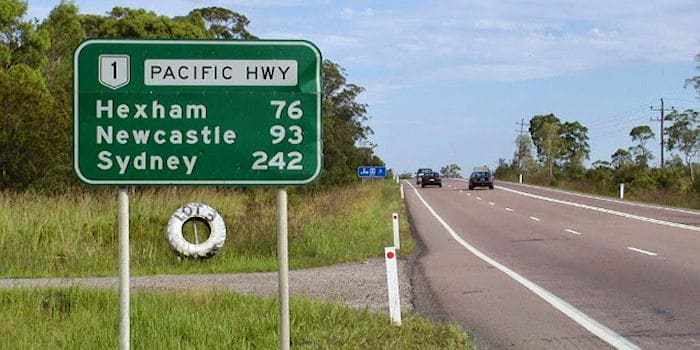

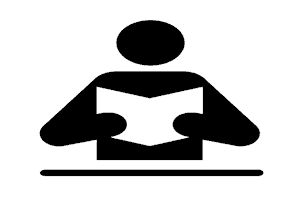
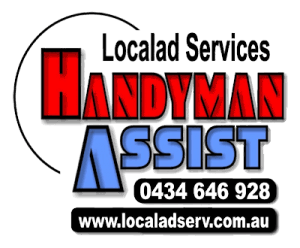
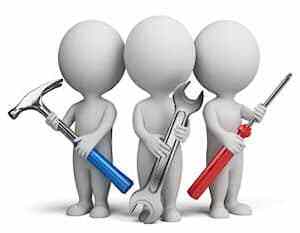
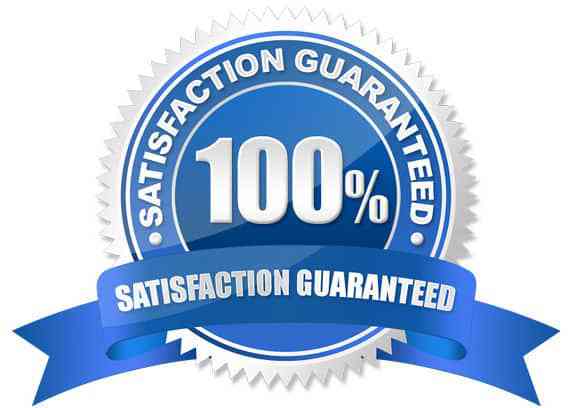
Recent Comments